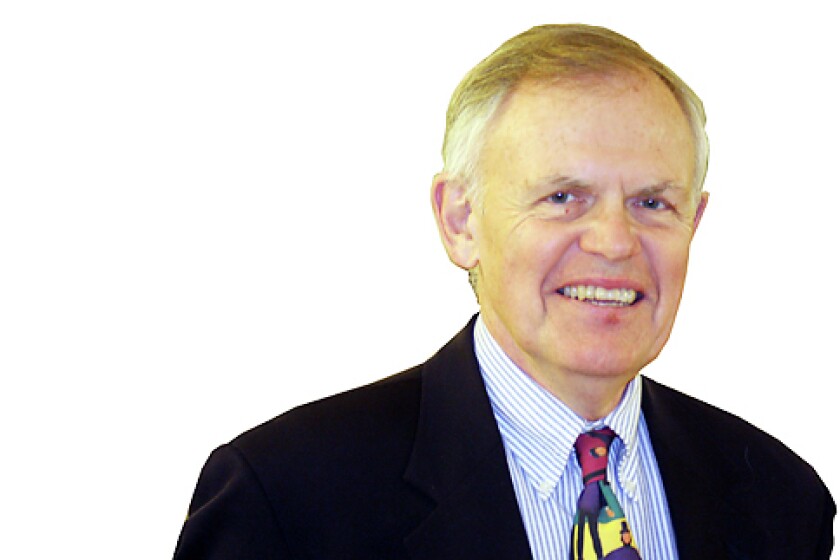As a newspaper reporter who covered South Dakota’s Legislature, I became accustomed to annual debates over prisons.
Corrections issues were nearly as ever-present as taxes and schools for the 40 sessions I covered. One way or another, prisons – how much they cost, how they operate, what crimes should send a person into the system and other corrections’ issues – created intense and often emotional debate among legislators.
The current, long-running public-policy conversation over where to build a new prison caused me to recall how often in state Capitol meetings rooms I listened to talk about crime and punishment. I had been following the most recent debate rather loosely in retirement. For a long while, a site near Harrisburg seemed probable, with costs ranging upwards of $800 million.
They say all politics is local. That’s certainly true of prison debates. When the debate shifted as Lincoln County residents protested, Mitchell joined the discussion as a potential site. That idea, a community not all that far from my home along the river, heightened my attention to the debate.
It also brought memories of moments from other prison talk in other years.
Back in the early 1970s – I can’t really recall the specific issue under consideration – I remember the warden referring to South Dakota’s main penitentiary on the hill in Sioux Falls as “not a hard joint.’’ He said, in fact, that he could walk through the yard alone without worry.
I don’t know, but I doubt that would be true these days. My vague awareness is that most of the people South Dakota locks up are non-violent. Still, there are some hard folks inside.
In the middle 1980s, during Bill Janklow’s first set of terms as governor, a major corrections’ debate was over turning a state campus, the University of South Dakota - Springfield, into a prison. Gosh, that got emotional. A couple of things I won’t forget about that one:
Republic Rep. Harold Sieh of Herrick, a leader on the state budget committee at the time, agonizing over the decision. He later said it was a vote that broke his heart.
ADVERTISEMENT
The often-repeated, not-that-funny riddle: “What would Janklow do if he had a flat tire in Bon Homme County?’’ Bon Homme includes the community of Springfield.
“He would have to push the car to the Yankton County line, because nobody in Bon Homme would help him fix the tire.’’
As the 1980s neared the 1990s, George Mickelson became the governor wrestling with prisons and inmates. I remember a proposal to cap the total number of prisoners. If a new prisoner showed up at the front gate, an already-serving inmate would have to be released. It was one among many ideas.
South Dakota is tough on crime. We have been for a long while. I recall a story I reported during the Mickelson years. The newspaper sent me to Bismarck to talk with the head of the North Dakota prison system. His state had about half as many inmates then as did South Dakota. When I asked why, he said something like, “We don’t lock up people for as many things as South Dakota does.’’ Well, okay, then.
In the current prison debate, my understanding is that a group called the Project Prison Reset task force is considering Mitchell and a site near Worthing. I don’t envy the members for their task.
I found one of my news clippings from the Mickelson years recently. I quoted him as saying a new penitentiary might cost as much as $100 million. That was 35 years ago. The latest information I saw from the current prison task force suggests $600 million.
With that Mickelson clip was another one quoting former state Rep. Harvey Krautschun of Spearfish: “Society is saying take care of the crime problem, and if it takes more cells, that’s what it takes.’’
ADVERTISEMENT
That takes money and a location. It also takes major decisions based on thoughtful, fact-based deliberations. The Russian author, Fyodor Dostoevsky said, “People with new ideas, people with the faintest capacity for saying something new, are extremely few in number, extraordinarily so, in fact.”
If South Dakota is lucky, some of those people are on the prison task force.








